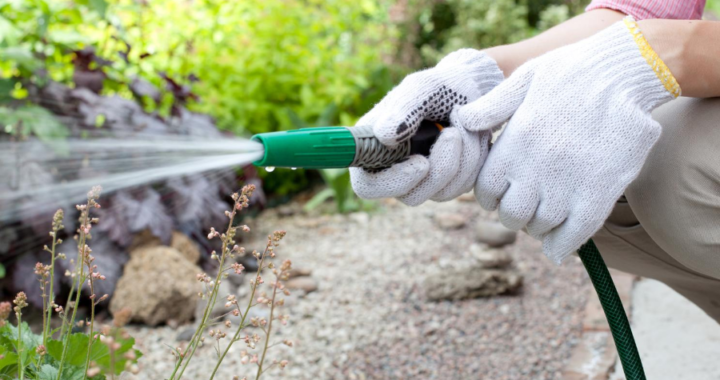It takes a lot of water to keep our gardens looking fresh, alive, and beautiful. But as we work to keep our landscaping looking its best, we can end up wasting gallons and gallons of water each year. This has negative consequences for our environment and our pocketbooks alike. Follow these landscaping water conservation tips to save money, reduce water use, and still have a lush and beautiful property.
Use Native Plants
When choosing plants for your gardens, consider native and drought-resistant varieties. Plants that grow natively in your area will require less maintenance and little watering once they are established, as they are naturally adapted to thrive in your local climate.
Plan Ahead
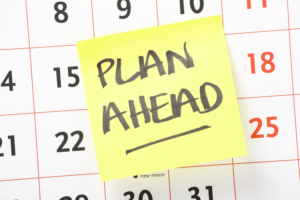
Try to get all new plantings in the ground in spring, when they will require less water to get started. This will also keep plants out of the hot summer sun while they are tender and new, giving them a better chance to thrive.
Use Compost and Mulch
Compost and mulch are like a 1-2 punch for your planting beds: compost enriches the soil, keeps moisture near plant roots and helps suppress disease and pests; mulch keeps roots cool, minimizes evaporation, and reduces weed growth. Organic mulches also add organic matter to the soil over time, helping to continually improve your soil. Healthy soil absorbs water better and encourages deeper root growth.
Give Plants a Good Soaking
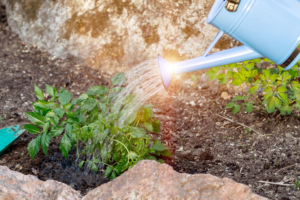
Much of the water that sprinklers give off is evaporated during the heat of the day, and doesn’t even reach your plants. Instead of watering continuously with sprinklers, give your plants fewer, heavy soakings, preferably early in the day when evaporation rates are lower. And remember to water the soil, not the leaves, to keep evaporation to a minimum and help prevent fungal diseases and sunscald.
Collect Rainwater or Reuse Greywater
Collecting rainwater or reusing greywater will not only conserve water but also provide you with a free water source for your plants. Rainwater is especially beneficial, as it is free of the chemicals and salts that are present in most groundwater and city water sources.
Watch For Leaks
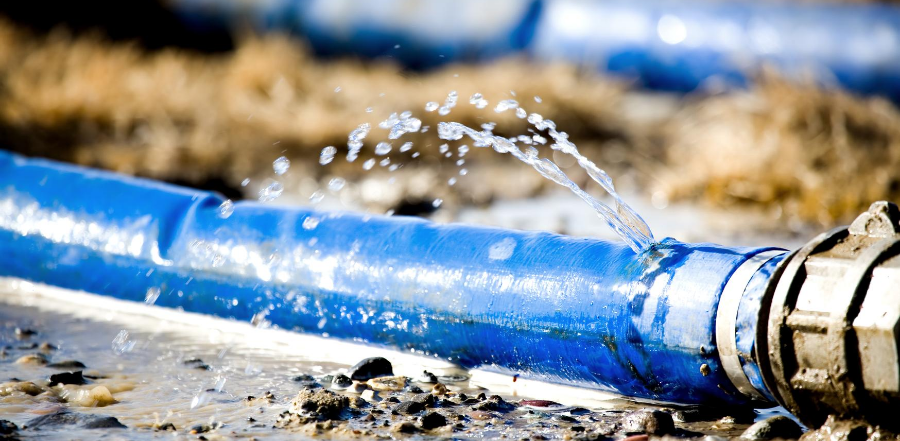
The EPA notes that a leak in a hose or irrigation system as small as 1/32” can waste 6,300 gallons of water per month. Imagine how much water you could lose with larger or multiple leaks! Make sure to check for leaks on a regular basis to save both water and money.
Keep Grass Longer
When you mow, keep grass at the upper recommended limit (usually around 2”) to help shade the soil and prevent evaporation. This will keep your soil from drying out, leading to healthier plants and grass and necessitating fewer waterings.
Replace Traditional Grass with Groundcover
More than half of our outdoor water use is spent on our lawns. To conserve water, consider replacing some of your grass with a drought-tolerant groundcover. Groundcover plants can cover large areas and need less water and no mowing. And on top of that, they can be quite beautiful!
Install a Drip Irrigation System
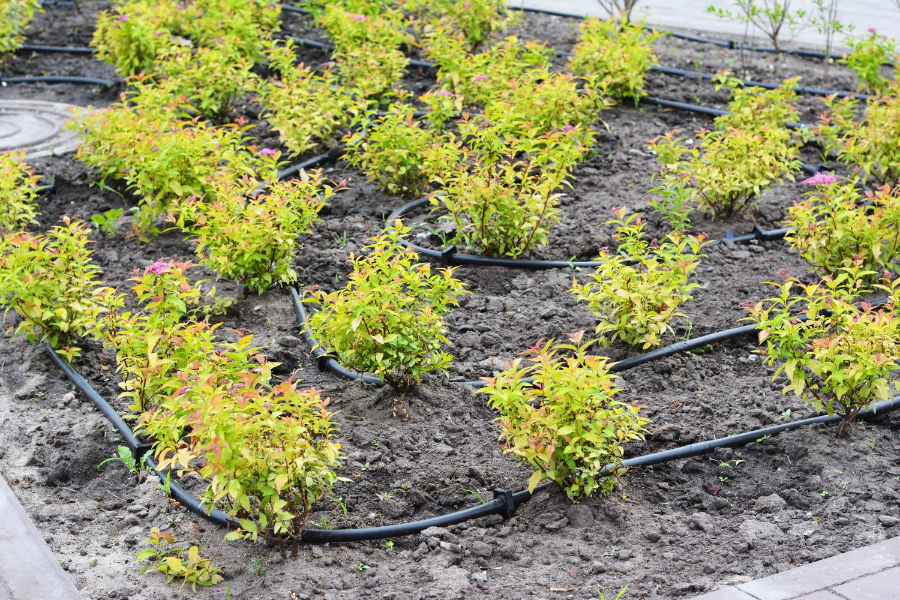
Drip irrigation systems bring water right to the roots of your plants, allowing for less evaporation and making them more efficient than a traditional sprinkler system. The average drip irrigation system uses between 30 and 70 percent less water than sprinklers, conserving water and saving you money!
Don’t Overwater
Along with your irrigation system, consider installing an automatic rain shutoff device. These devices automatically turn off when a specified amount of rain has fallen, protecting against overwatering. On top of wasting water, overwatering can stress your plants’ root systems and contribute to root rot and fungal or bacterial disease. Not ready for an automatic shutoff device? You can still protect your plants against overwatering by determining how much water your plants actually need based on the type of plant and climate, then watering accordingly.
Need help creating the landscape of your dreams? McDonough Landscaping’s experienced designers can recommend the right plants for your yard and help you design a beautiful outdoor space. Contact us here or give us a call to get started – (651) 755-7901.

